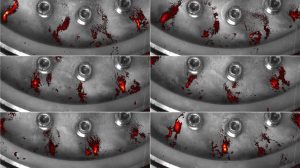The MSCA Doctoral Network project CaviPRO received the maximum grade (100%) and financing of 2.2 M€. It will host 10 PhD students across Europe.
Hydrodynamic cavitation is known for causing damages on machines, pipelines and equipment due to the formation and implosion of tiny gas bubbles and local temperature hotspots. Controlling and utilizing these harsh micro-conditions has the potential to revolutionize process unit operations such as mixing, reactions, emulsions and particle formation for the benefit of the European process industries and global industrial community. Systematic understanding of the physicochemical phenomena occurring in HC and design of HC reactors and scale-up are missing.
The project aims to guide the research further towards gamechanging implementations that utilises hydrodynmiac cavitation and orchestrate them in large systems that are ready for industrial deployment. To acheive this we will push the current scientific boundaries and explore entirely new irections of fundamental research on controlled cavitation that is linked to state-of-the-art additive manufacturing, advanced process control and machine learning.
The project network is built on synergies and complementarities between leading scientists, worldclass institutions, different disciplines, and the incorporation of several industries as drivers – ranging from start-ups to SMEs to global players from all over Europe: Uni Limerick, Tu Dresden, Helmholtz-Zentrum Dresden-Rossendorf, Uni Torino, Uni Ljubljana, Eth Zurich, Air Liquide, Biocore, Paul Scherrer Institut, Paques Technology, Pfizer, CRB, Andritz, Johnson & Johnson, Siemens, Fraunhofer Institut.
